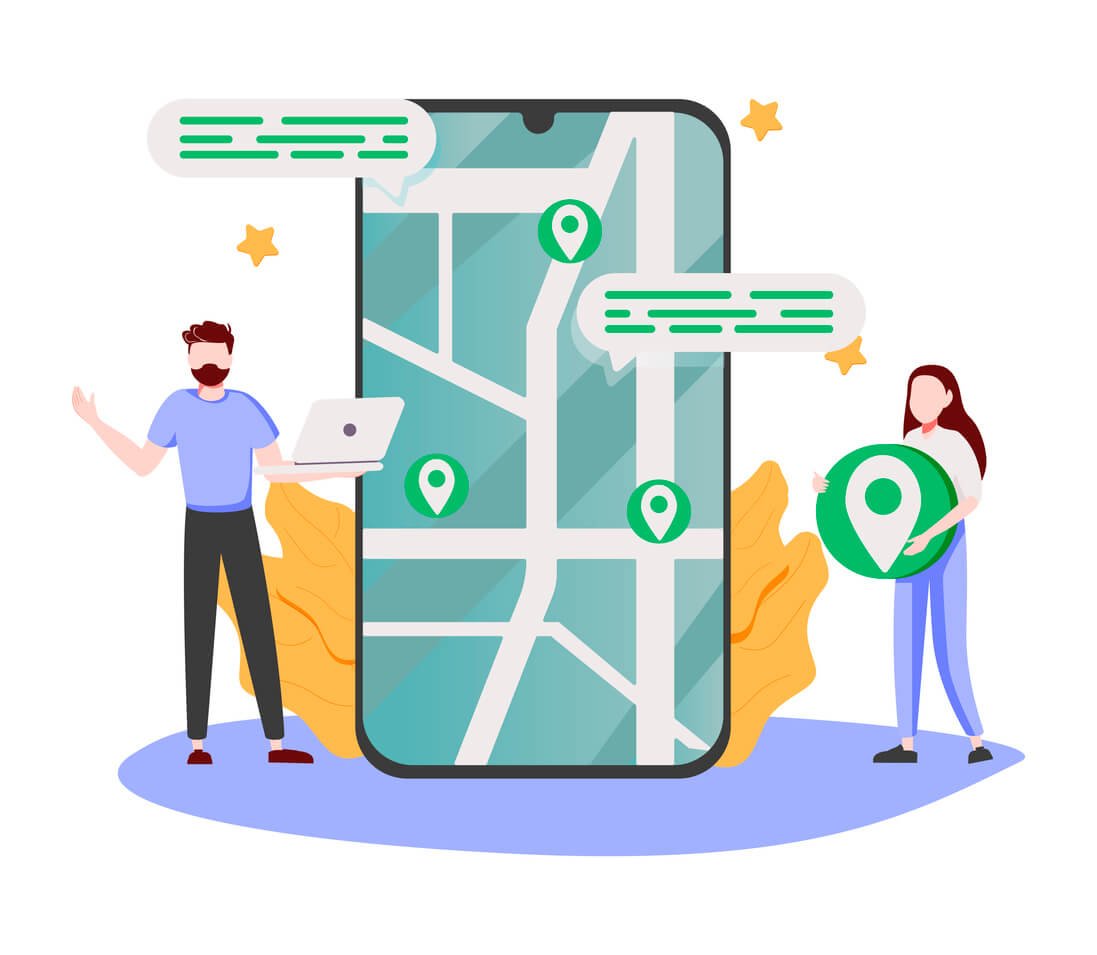How Can Small Businesses Master Local SEO
Search engines use local SEO to figure out where your business is located, the products or services it offers, and how they fare in comparison to other businesses nearby. So if you want to capture customers in your immediate area and outshine the competition, local SEO is the answer.
Online search frequency for local businesses is reasonably high. In the US, 21% of consumers search online for a local business every day. Another 32% do so several times a week. These figures highlight the importance of local SEO in driving visibility and engagement for local establishments.
Understanding the Dynamics of Local SEO
Recent advances in artificial intelligence (AI) and automation and their integration into local SEO are rapidly changing the dynamics of this domain.
Automation tools now handle routine tasks like updating business listings, which saves time and reduces errors. Meanwhile, AI algorithms analyze large datasets to find patterns and predict consumer behavior. These predictions help businesses adapt their local SEO efforts accordingly for more precise targeting of consumers.
Despite these advances, there are still multiple challenges small businesses face with local SEO:
- Maintaining consistent and accurate business information across various platforms can be cumbersome.
- Optimizing for local keywords and managing geo-targeting requires technical knowledge and a nuanced approach.
- Though essential, managing customer reviews and ratings across multiple platforms can be demanding.
In this article, we explore effective strategies and best practices to up your local SEO game. We also cover the role of customer reviews in enhancing your search strategy to help you drive more traffic and achieve business growth.
Mastering the Basics of Local SEO
Local SEO is a sophisticated and occasionally complex process. For small businesses especially, there are no shortcuts to success.
Here are the key elements that determine the effectiveness of your local SEO efforts:
1. Google Business Profile
Your Google Business Profile (GBP) is the most important factor in determining visibility in local searches.
Let's say you run a local restaurant. If your GBP is not optimized with an accurate address, a working website link, and high-quality images, you run the risk of being overlooked by search engines.
Images are key in this context because people remember them better than words. They help differentiate your business from others, establish credibility, and give users a feel for the quality of your offerings.
A well-optimized GBP with appealing images can significantly impact potential customers' perception of your business.
2. Keyword Research and Placement
Keywords are words and phrases that users type in to conduct online searches. Including keywords judiciously in your content improves its overall visibility and discoverability by search engines.
Keywords are vital to establishing high local search rankings for small businesses. That involves specifying your location (city, neighborhood, and landmarks) and using industry-related keywords. Using the right set of keywords helps attract local customers who are looking for particular products or services.
A salon, for instance, must use keywords like 'best haircut in [city name], or ‘best hair stylist near me’ to show up in local searches.
You can also use Google Trends and keyword tools to find local search terms. Make sure to avoid keyword stuffing, however. Google has classified keyword stuffing as spam, and it can compromise your rankings.
For example, cramming keywords like 'best haircut in [city name] or ‘best salon in [city name]' into your content can hurt local SEO instead of improving it.
3. Well-Designed and Updated Website
A well-designed and up-to-date website is the cornerstone of local SEO.
The top three sources for researching local businesses are:
- Google (66%)
- Google Maps (45%)
- The business’s own website (36%)
Having a website enhances your local SEO efforts manifold. If someone searches for a local thrift store and finds your GBP, for instance, they are likely to click through to your website. There, they must find detailed information about your products and sustainability practices. That is information that improves transparency and builds trust in your business. It’s what helps convert chance visitors into paying customers.
Take Double Take, a social enterprise in Regent Park, Toronto. It demonstrates the value of a well-crafted and current website for local SEO. Its Google Business Profile connects to a site showcasing the company’s values, environmental efforts, and diverse projects.
Finally, ensure your website is mobile-friendly. A substantial portion of local searches are done on mobile devices. Having a responsive design improves user experience and can boost your local search rankings.
4. NAP Consistency
NAP stands for Name, Address, and Phone number. Ensure your NAP details are consistent across all online directories and platforms. Inconsistencies can confuse both search engines and potential customers, leading to lower rankings.
Leverage Customer Reviews for Local SEO
The percentage of consumers who trust reviews as much as recommendations from family and friends has jumped by 4 points since 2023. That just shows how a good review can work wonders for local SEO.
For local businesses, it means that earning glowing reviews can rival the impact of personal recommendations.
Why Reviews Are Important for Local SEO
Customer reviews influence local SEO by improving your online reputation and increasing your visibility in search results. Surveys show that 33% of Americans have made online reviews their go-to guide for evaluating local businesses. In other words, they won’t set foot in a local business without checking out its reviews first.
Positive reviews can enhance trust and attract more customers from your immediate area or neighborhood. They also help search engines gauge the relevance and quality of your business, which directly impacts your search rankings.
Beaches of Normandy Tours demonstrates how reviews can drive success. Their Google Business Profile boasts over 100 reviews with a perfect 5-star rating. They also feature a dedicated landing page with 400+ client testimonials, embedding their GBP reviews for added transparency. This strategy builds trust, engages customers, and strengthens their presence in local search rankings.
How to Ask for Reviews
Make it a point to encourage customers to leave reviews. There’s no end of automation, AI, and integrated software you can use for that purpose. These tools streamline the process of asking for reviews and sending follow-up messages. Overall, they make it easy for customers to share their feedback.
For instance, you can send an SMS saying, 'Hi [Customer Name]! We hope you enjoyed your recent visit to [Business Name]. Could you spare a moment to leave us a review? Your feedback means a lot to us! [Review Link]'
You can adapt the same message to send an email saying, 'Dear [Customer Name], Thank you for choosing [Business Name]! We’d love to hear about your experience. Please take a moment to leave a review and let us know how we did. Click here to share your thoughts: [Review Link]'
Simplifying the review process increases the chances of getting valuable feedback.
Responding to Reviews for Better Customer Experience and SEO
Prompt and thoughtful responses to customer reviews enhance the customer experience. A proactive approach to reviews can positively impact your local SEO.
Addressing feedback shows that you value customer input and helps build a positive reputation for your small business. Google sees active engagement like responding to reviews as a sign of trustworthiness. You must use it as part of your strategy to boost your local rankings.
Using Reviews on Various Platforms
Invite customer reviews across multiple platforms, such as Google and social media, to enhance your local SEO. Positive reviews on these platforms boost your online credibility. They also drive organic search traffic to your business.
Effective management and showcasing of reviews increase your visibility and attract more local customers.
Elevate Your Local SEO with NiceJob's Review Management Tools
Online reviews are a key to local SEO success. For potential customers, they are often the first step towards finding and choosing a local business.
Managing reviews can sometimes be time-consuming, especially for small businesses. NiceJob simplifies the process by helping you collect more reviews. It enables you to surpass local competitors and increase sales.
NiceJob automates the processes of review collection, referrals, and social media content creation.
Leave it to us to boost your local SEO while you focus on your core business
Start Free




